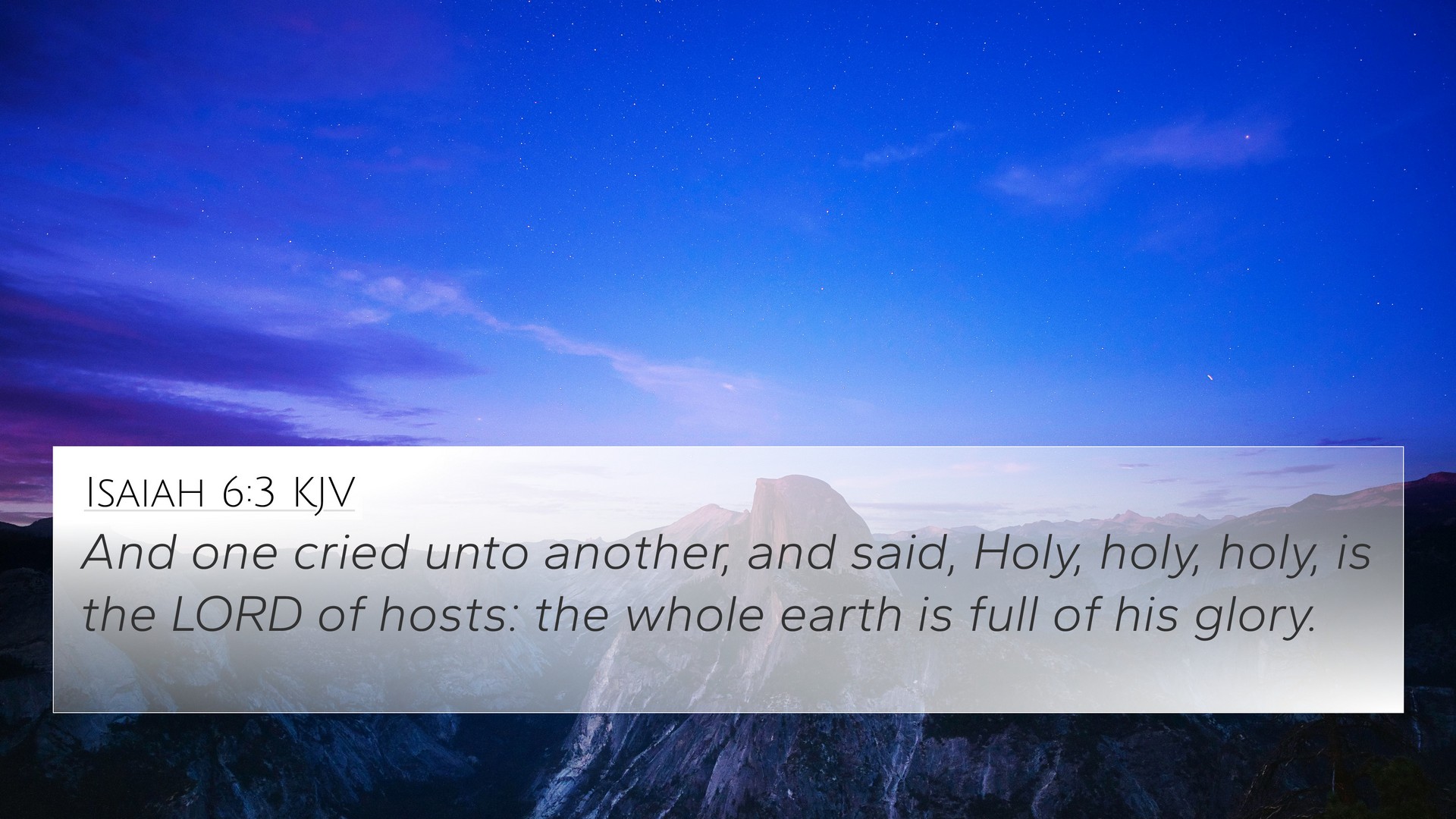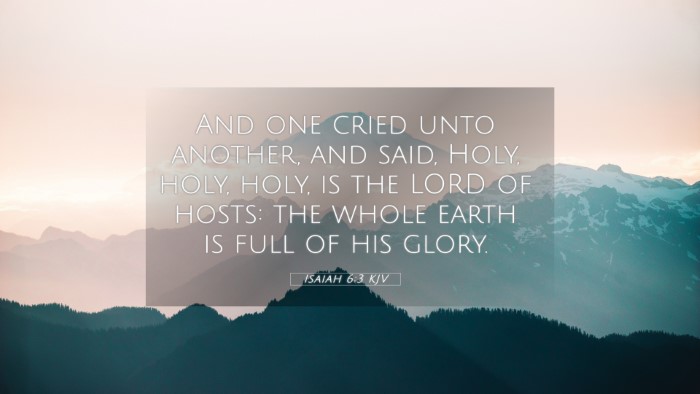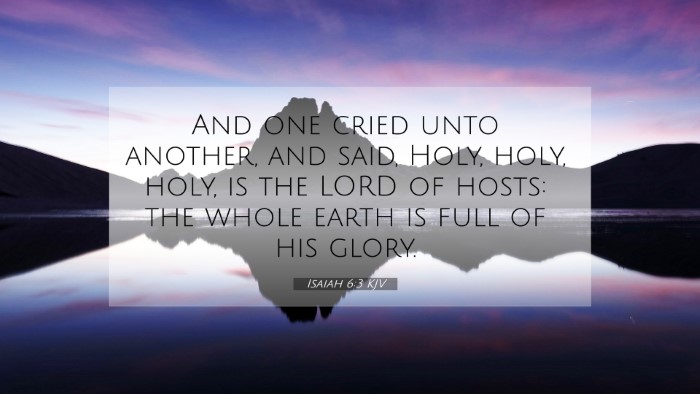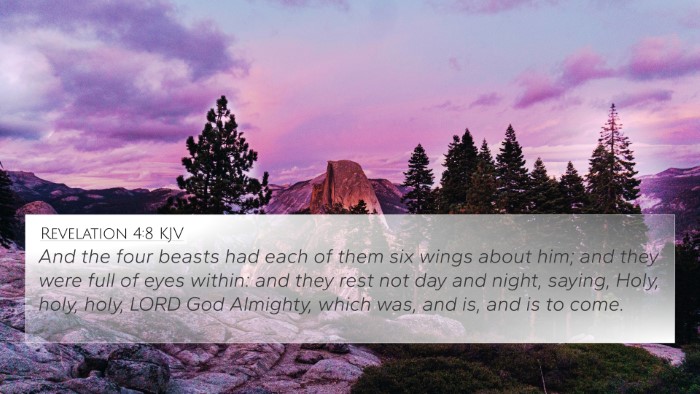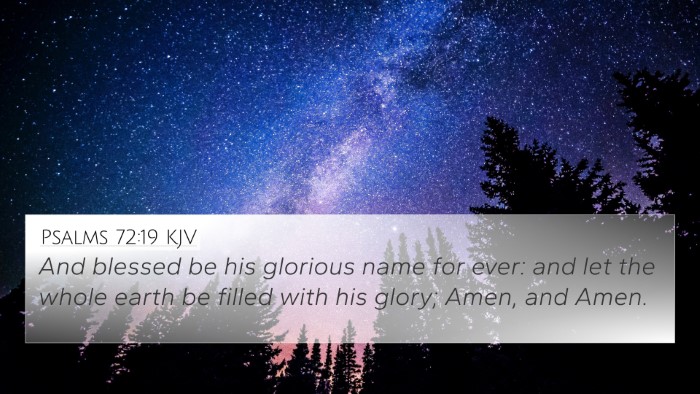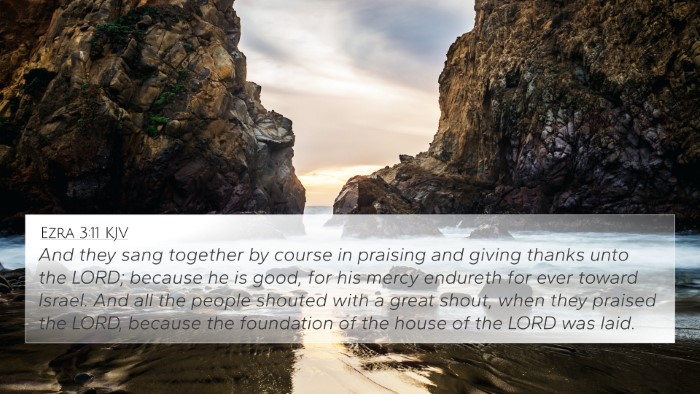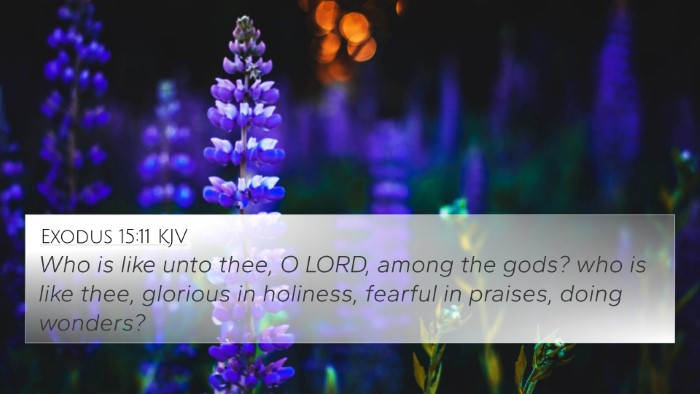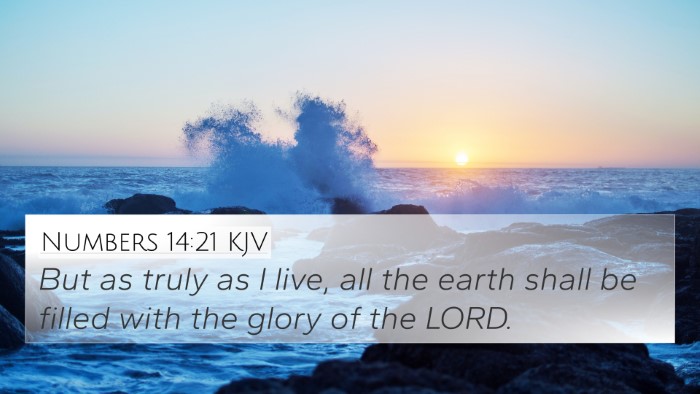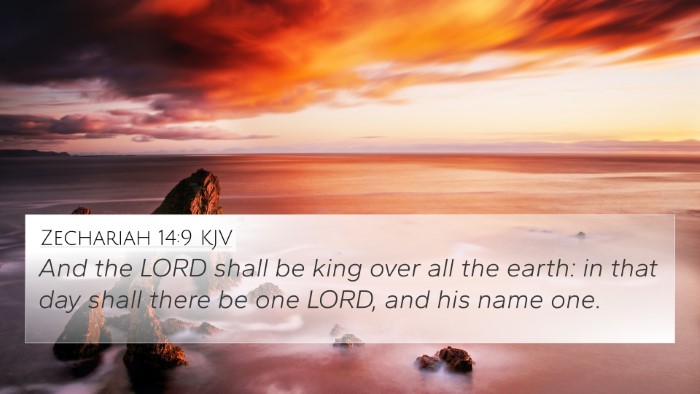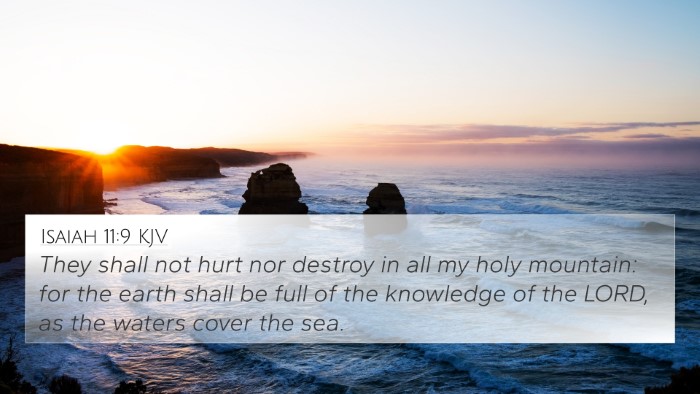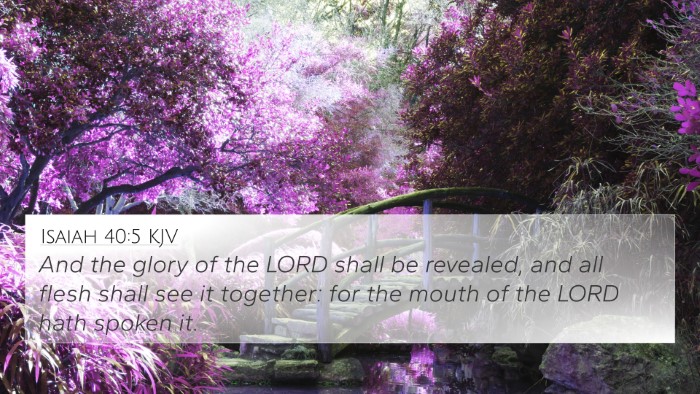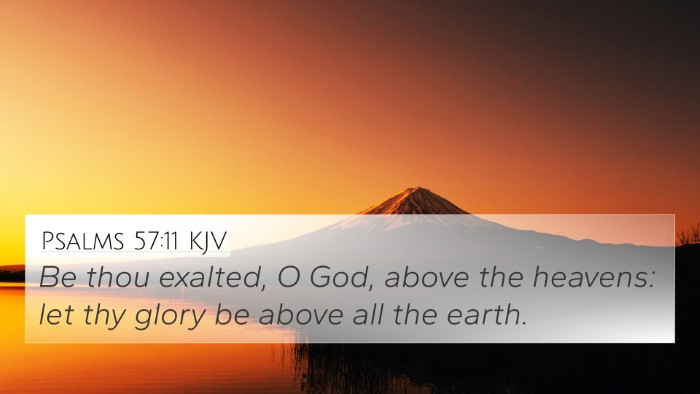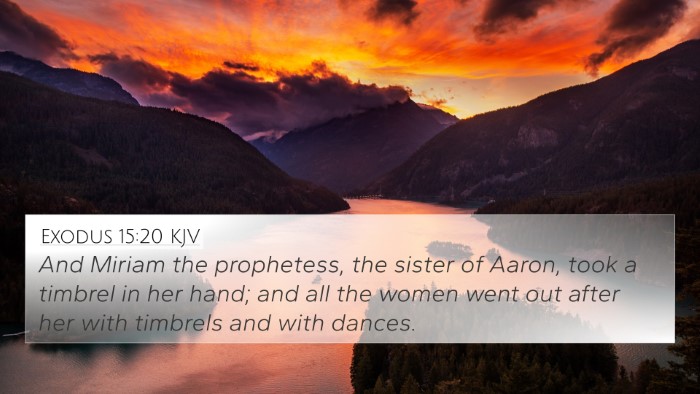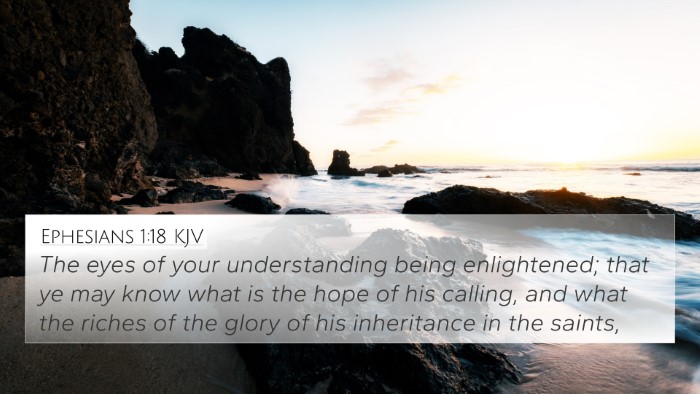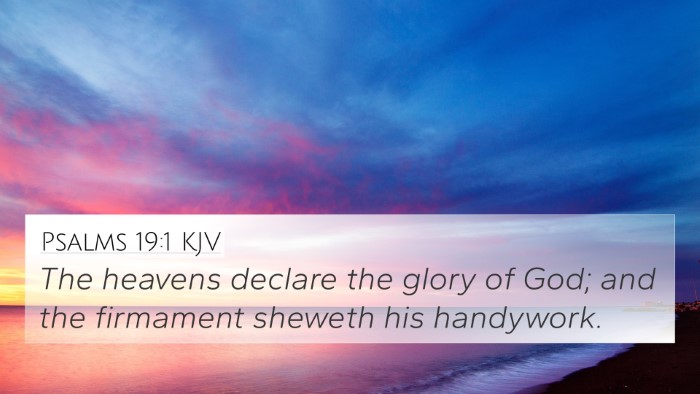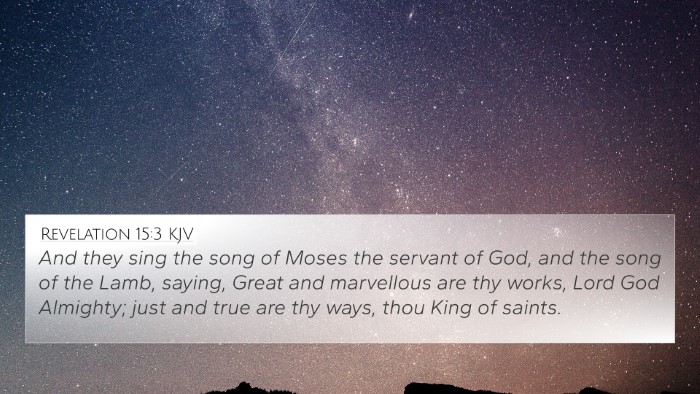Understanding Isaiah 6:3
Isaiah 6:3 states, "And one cried unto another, and said, Holy, holy, holy, is the Lord of hosts: the whole earth is full of his glory." This profound verse captures the essence of God’s holiness as acknowledged in a celestial vision experienced by the prophet Isaiah. Below, we will delve into the meaning and implications of this verse, drawing insights from public domain commentaries to enrich our understanding.
Key Themes in Isaiah 6:3
- Holiness of God: The threefold repetition of "holy" emphasizes the absolute perfection of God's character.
- The Majesty of God: The proclamation highlights God's sovereignty and exalted nature over all creation.
- The Glory of God: The phrase "the whole earth is full of his glory" signifies God’s manifest presence in the world.
Commentary Insights
Many esteemed commentators have provided rich insights into Isaiah 6:3:
Matthew Henry
Matthew Henry remarks that the seraphim’s declaration reflects the profile of pure worship. The repetition of "holy" suggests a completeness and an infinite aspect of God's holiness that is beyond human comprehension. This acknowledgment from heavenly beings signifies that all creation is subject to God's divine authority.
Albert Barnes
Albert Barnes points out that the responsive call of the seraphim demonstrates a theological truth: God is central and essential to worship, and the acknowledgment of His holiness is the foundation of all true praise. Barnes also emphasizes the effect of God's glory on humanity, suggesting that the recognition of divine holiness leads believers to a closer walk with God.
Adam Clarke
Adam Clarke notes the significance of the seraphim's cry as a powerful acknowledgment of God's supreme purity and righteousness. He interprets this verse as an invitation for all to recognize the glory in creation, showing how even the very earth bears witness to God’s majesty. The seraphim serve as intercessors who highlight the heavenly perspective of divine attributes.
Bible Cross-References
Isaiah 6:3 interconnects with several other Bible verses that echo its themes of holiness, glory, and divine worship. Here are some pertinent cross-references:
- Revelation 4:8: "Holy, holy, holy, Lord God Almighty..." - A direct echo of the seraphim's proclamation, emphasizing eternal worship.
- Psalms 99:9: "Exalt the Lord our God, and worship at his holy hill; for the Lord our God is holy." - This connects the theme of God's holiness with worship on earth.
- Exodus 15:11: "Who is like you, O Lord, among the gods? Who is like you, majestic in holiness..." - This verse celebrates God's unmatched holiness.
- Habakkuk 2:14: "For the earth shall be filled with the knowledge of the glory of the Lord..." - Draws attention to God's glory saturating the earth.
- 1 Peter 1:16: "Because it is written, 'Be holy, for I am holy.'" - Calls believers to reflect God's holiness in their lives.
- Romans 11:36: "For from him and through him and to him are all things. To him be glory forever." - Affirms God's role as the source of all glory.
- John 1:14: "And the Word became flesh and dwelt among us, and we have seen his glory..." - Refers to the glory of Christ, linking it to God’s revelation of holiness.
Linking Scriptures and Thematic Connections
Understanding Isaiah 6:3 requires a broader look at how this verse relates to others within the Scriptures. The inter-Biblical dialogue formed between these verses can deepen our theological insight, showcasing the consistency of God's holy nature across both the Old and the New Testaments.
Connections to Jesus' Teachings
New Testament writings expand upon the themes found in Isaiah 6:3, particularly in the context of Jesus’ ministry and His role as the culmination of God's glory. For example:
- Matthew 5:16: "Let your light so shine before men, that they may see your good works and glorify your Father in heaven." - Here, Jesus emphasizes reflecting divine glory through righteous actions.
- Hebrews 1:3: "He is the radiance of the glory of God and the exact imprint of his nature..." - This verse underlines the unveiled glory of God in Christ.
Comparative Bible Verse Analysis
In performing a comparative analysis of Isaiah 6:3 with its cross-referenced scriptures, one can observe how the theme of holiness is a unifying thread throughout the Bible. This thematic study reveals the coherent narrative woven throughout both Testaments, underscoring the call to holiness in relationship with God.
Tools for Bible Cross-Referencing
To explore these connections further, utilizing tools such as a Bible concordance, a Bible cross-reference guide, or engaging in cross-reference Bible study methods can greatly enhance your understanding. These tools assist in identifying themes, tracking biblical motifs, and grasping intermodal connections.
Conclusion
Isaiah 6:3 is not just an isolated verse; it serves as a profound declaration of God's holiness and glory that resonates through all Scripture. Through examining insights from noted Biblical commentators, identifying cross-references, and understanding thematic connections, one can fully appreciate the depths of this verse and its significance within the wider biblical narrative.
